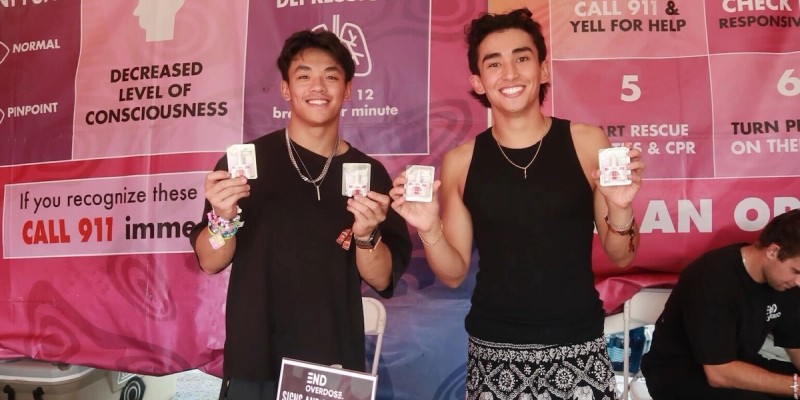End Overdose's chapter program is vital to our success in equipping young people with lifesaving education and resources. Rather than proselytizing from a soapbox to Gen-Z and Millennials, we trust young people in cities and on college campuses to spread the word through a true peer-to-peer model. With 50 chapters nationwide, our members and volunteers are committing endless hours to End Overdose's cause, so we want to highlight a chapter every week.
Today, we're proud to highlight our University of Miami chapter! We spoke with chapter president Bobby DiCaprio about what he's learned throughout his time in a leadership position, bringing lifesaving resources to the University of Miami campus, and much more.
What sparked your interest in overdose prevention/response and End Overdose in particular?
My interest in overdose prevention began at my very first music festival. I witnessed a drug-related medical emergency unfold in front of me, and while medical teams responded quickly, I couldn’t shake the thought that simple, proactive overdose prevention could have prevented the situation altogether. That moment stuck with me and inspired me to learn more about how to keep people safe in those environments. Since then, I’ve attended many music festivals and seen both the risks and the community that forms around them. When I discovered End Overdose actively working at a festival—offering resources, education, and support—it immediately resonated with me. I knew I had to be a part of it. It felt like the perfect opportunity to turn concern into action, and to help create a culture where people look out for one another.
Can you describe your experience as chapter president of Miami?
Being the chapter president at Miami has been an incredibly rewarding experience. I’ve had the opportunity to lead a passionate team of students and organizers, and together we've built strong relationships on campus and in the community. Whether it's organizing training sessions, distributing fentanyl test strips and naloxone, or educating students about overdose prevention, I’ve learned the importance of balancing logistics, outreach, and heart. Leadership in this role has also pushed me to grow—I've learned how to motivate others, navigate institutional barriers, and stay grounded in the mission, even when facing challenges.
How have you developed authentic connections within the community?
Authentic connection starts with listening and showing up consistently. I’ve spent time at community events, student org fairs, and tabling sessions just talking to people—hearing their stories, their concerns, and what they wish they’d known earlier. We’ve collaborated with student orgs, local health groups, and campus leaders to make our work accessible and relevant. I try to approach every interaction with empathy and no judgment, and I think that’s helped create trust. People don’t just see us as a resource—they see us as peers who care.
What’re the major highlights from your chapter’s work to date?
One of the most rewarding aspects of our chapter’s work has been the opportunity to engage directly with students and faculty across campus. We've hosted hands-on naloxone trainings, led overdose prevention workshops, and participated in panel discussions where we’ve been able to dispel myths and provide practical, life-saving education. These conversations often go beyond the basics—they open the door to deeper understanding about substance use, stigma, and safety. Seeing students leave a training more confident and prepared, or having a faculty member thank us for bringing this perspective to campus, reminds us of the impact we’re making. It’s those one-on-one moments—where someone says, “I didn’t know that, but I’m so glad I do now”—that really stand out as the highlights of our work.
What do you envision for the future of your chapter?
I envision a chapter that’s deeply embedded into campus culture—where overdose prevention is a core part of orientation, party planning, and wellness conversations. I want to see our trainings expanded, our collaborations deepened, and our resources available at every major event, especially festivals and concerts. I also hope to build a sustainable leadership pipeline so future students can take the reins and keep growing the mission. Ultimately, I see our chapter becoming a model for how student-led overdose prevention can truly save lives and shift perspectives.
